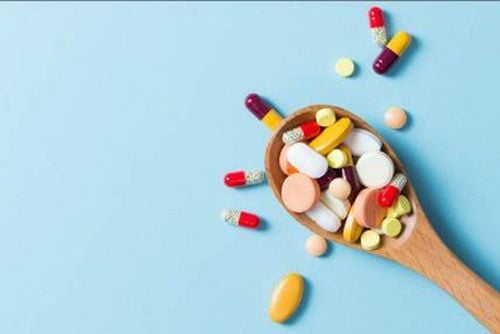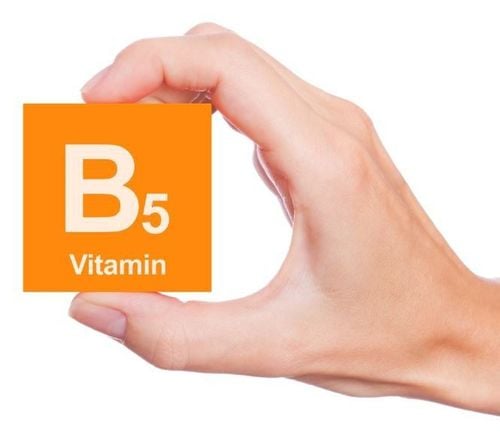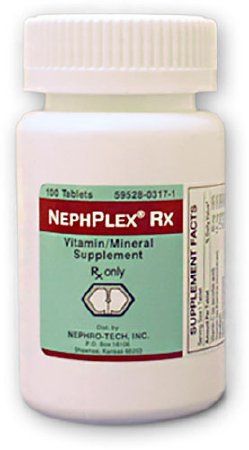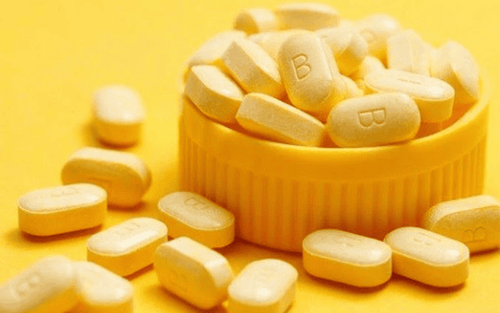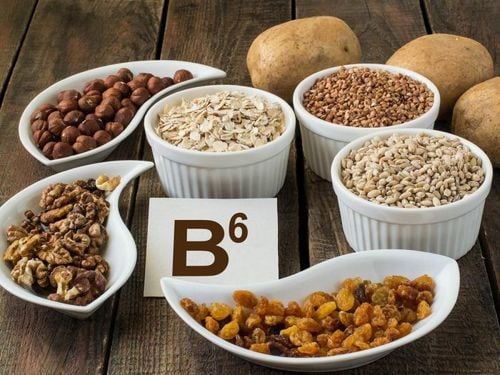This is an automatically translated article.
B vitamins are generally effective against free radicals (which are the main cause of skin aging). In particular, each type of vitamin B also has a certain role for the skin.1. Overview of B vitamins
Vitamin B is classified into many types such as: B1, B2, B3, B5, B6, B7, B9, B12. It has general effects such as:Stimulates digestive activity. Participating in the regulation of the transmission of nerve impulses, increasing stimulation of mental activity and memory. Involved in hemoglobin synthesis. Therefore, if it is possible to be deficient in some B vitamins, it will cause anemia. With its water-soluble characteristics, B vitamins play an important role in the body's metabolism. Therefore, a full daily vitamin B supplement is extremely necessary if you want to own a healthy, white skin from within.
2. What do B vitamins do for the skin? B vitamins are generally effective against free radicals (which are the main cause of skin aging). In particular, each type of vitamin B also has a certain role for the skin.
2.1. Vitamin B1 Vitamin B1 is also known as Thiamin, has the effect of preventing oxidation, helping to remove toxins from the skin, fighting free radical damage, treating melasma, freckles and aging. Proper use of vitamin B1 will help you have shiny and healthy skin.
Foods containing vitamin B1 include: Cereals, milk, eggs, nuts (green beans, sesame, sesame...), salmon, beef, chicken, spinach...
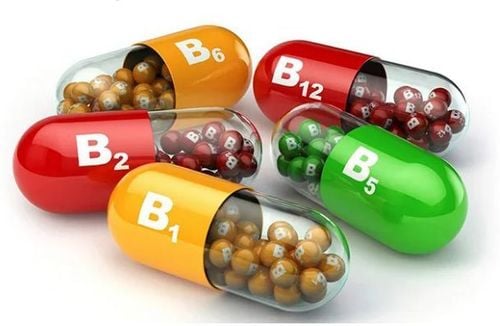
Vitamin B có tác dụng gì cho da? Câu trả lời là nó có tác dụng chống các gốc tự do gây lão hóa da
2.2. Vitamin B2 Vitamin B2 is also known as Riboflavin, works to maintain collagen content, participates in the development of cell tissues, regulates sebum, prevents acne, helps skin smooth and fights the aging process. effective aging.
Foods containing vitamin B2 include: Meat, almonds, milk, eggs, mushrooms, mackerel, broccoli and sesame seeds.
2.3. Vitamin B3 Vitamin B3 also known as Niacin or Niacinamide, has the effect of preventing Melanin proliferation, reducing pigmentation, freckles, reducing sebum, treating acne, shrinking pores and improving skin pigmentation. In particular, vitamin B3 also plays an important role in helping the skin resist natural moisture loss and premature aging, thereby effectively rejuvenating the skin.
Foods rich in vitamin B3 include: Mushrooms, avocados, peanuts, green beans, chicken breast, beef, tuna, liver and macadamia nuts.
2.4. Vitamin B5 Vitamin B5 is also known as Pantothenic Acid, has the effect of maintaining moisture, preventing water loss, increasing elasticity and softness of the skin. At the same time limit peeling, itching and support the treatment of atopic dermatitis. Vitamin B5 increases collagen to help smooth skin. Elastin helps increase elasticity, thereby rejuvenating the skin and reducing the signs of aging. Vitamin B5 enhances the production of Glutathione - helps bind free radicals and peroxides, thereby reducing the formation of pigmentation spots that cause melasma and freckles on the skin. Foods rich in vitamin B5 include: sunflower seeds, eggs, avocados, beef, turkey, especially in breast milk....
2.5. Vitamin B6 Vitamin B6 also known as Pyridoxine has the role of regulating sebum secretion on the skin. Vitamin B6 deficiency can lead to seborrheic dermatitis, also known as Eczema.
Foods rich in vitamin B6 include: Tuna, salmon, cod, snapper, red bell pepper, broccoli, asparagus, rice bran, liver and sunflower seeds...
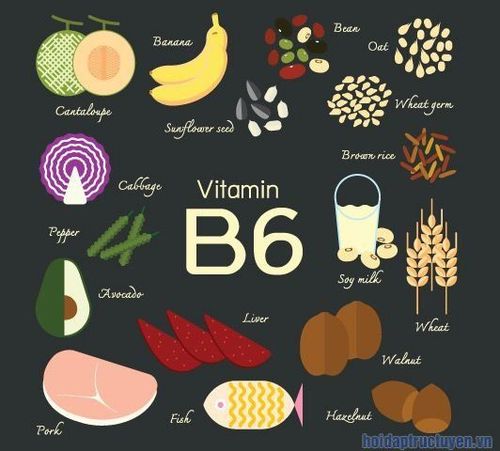
Vitamin B6 có tác dụng điều chỉnh độ tiết bã nhờn trên da
2.6. Vitamin B7 Vitamin B7 also known as Biotin, acts as a catalyst in metabolism, providing energy from the metabolism of nutrients such as carbohydrates, fats, and proteins. Vitamin B7 helps maintain the health of the skin, hair or nails, restoring the color of the skin affected by pollution or poor health.
Foods rich in vitamin B7 include: Carrots, cereals, soybeans, walnuts, yogurt and meat...
2.7. Vitamin B9 Vitamin B9 also known as Folic Acid has the effect of detoxifying the body, reducing the formation of acne, keeping the skin healthy, bright, and participating in the process of tissue growth and cell production. In addition, Vitamin B9 is also one of the important vitamins that should be taken before pregnancy to prevent birth defects.
Foods rich in vitamin B9 include: Lettuce, almonds, peas, sunflower seeds, peanuts, avocado, eggs and asparagus...
2.8. Vitamin B12 Vitamin B12, also known as Cobalamin, has the effect of increasing skin pigmentation Melanin, preventing pigment spots that cause melasma and freckles. At the same time, vitamin B12 is also involved in protein metabolism, helping to regenerate cells, thereby promoting the development and repair of skin damage.
Foods rich in vitamin B12 include: Beef, salmon, tuna, clams, eggs and soy milk.
In short, except for vitamin D, the other 3 groups of vitamins (A, B, C) cannot be synthesized by the body. Therefore, the only way to absorb it is through nutrition or functional foods, vitamins in the form of oral tablets or applied topically.
Please dial HOTLINE for more information or register for an appointment HERE. Download MyVinmec app to make appointments faster and to manage your bookings easily.




